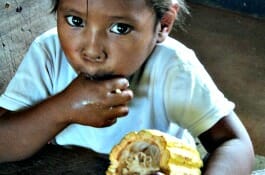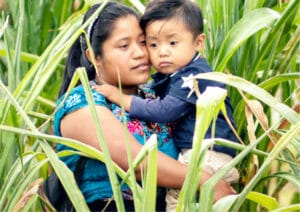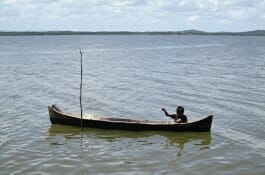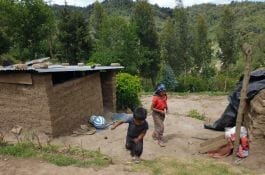
In 2014 the Zero hunger crisis that hit communities near the Guatemalan Dry Corridor has also had significant repercussions in…
Discover moreWeWorld has been present in Guatemala since 1994 with development interventions and humanitarian aid in support of the rural communities.
Guatemala ranks among the countries with the highest levels of inequality in Latin America, with high rates of poverty - particularly in the rural areas and among the indigenous populations - and with some of the highest rates of chronic malnutrition and maternal and infant mortality of the region.
In addition, the country is particularly subject to the consequences of climate change and to extreme environmental phenomena, such as chronic drought, which affects the area of the so-called Corredor Seco (Central American Dry Corridor).
We work to support the most vulnerable sections of the population through projects aimed at improving food security, the rights of women and children, socio-economic development, education and the WASH (Water, Sanitation and Hygiene) programmes.
Our intervention in the context of drought emergency has made it possible for the beneficiary families to receive economic aid and agricultural products to meet their food needs. The data collected has shown a positive impact, leading to a reduction in the incidence of food insecurity from 85% to 25% in the communities where intervention has taken place. In addition, a nutritional monitoring programme was created: we followed boys and girls and identified cases of acute malnutrition, in collaboration with the local healthcare personnel.
Among the various interventions, we donated fruit trees with a different cultivation cycle and a lower amount of water required than traditional vegetables to the beneficiary families. This intervention has helped to promote the diversification of the diet and has improved the state of food security. It has also strengthened the farmer economy, allowing to generate an economic gain and constituting an element of support for the families.
Finally, we organise workshops on soil nutrition and conservation and distribute seeds of various types, promoting alternative crops as well as the introduction of a diversified diet in the communities.
In 2014 the Zero hunger crisis that hit communities near the Guatemalan Dry Corridor has also had significant repercussions in…
Discover moreEND CLIMATE CHANGE, START CLIMATE OF CHANGE is a project funded by the European Commission in the framework of the…
Discover moreThe proposed action concerns 20 rural communities with high seismic risk in the Departments of Quetzaltenango and Totonicapán. The communities…
Discover moreThe project aims at providing Zero hunger assistance to the Guatemala population hit by the drought of 2014 and by…
Discover moreThe project reduced the social, organizational, physical, and Climate Changeal vulnerability of the communities of Limonada and Guatemala City.
Discover more


